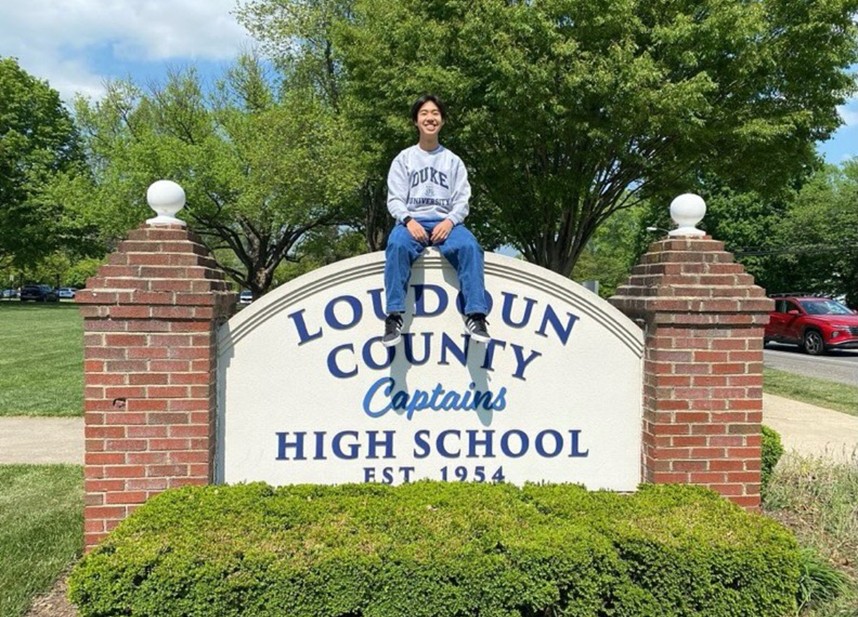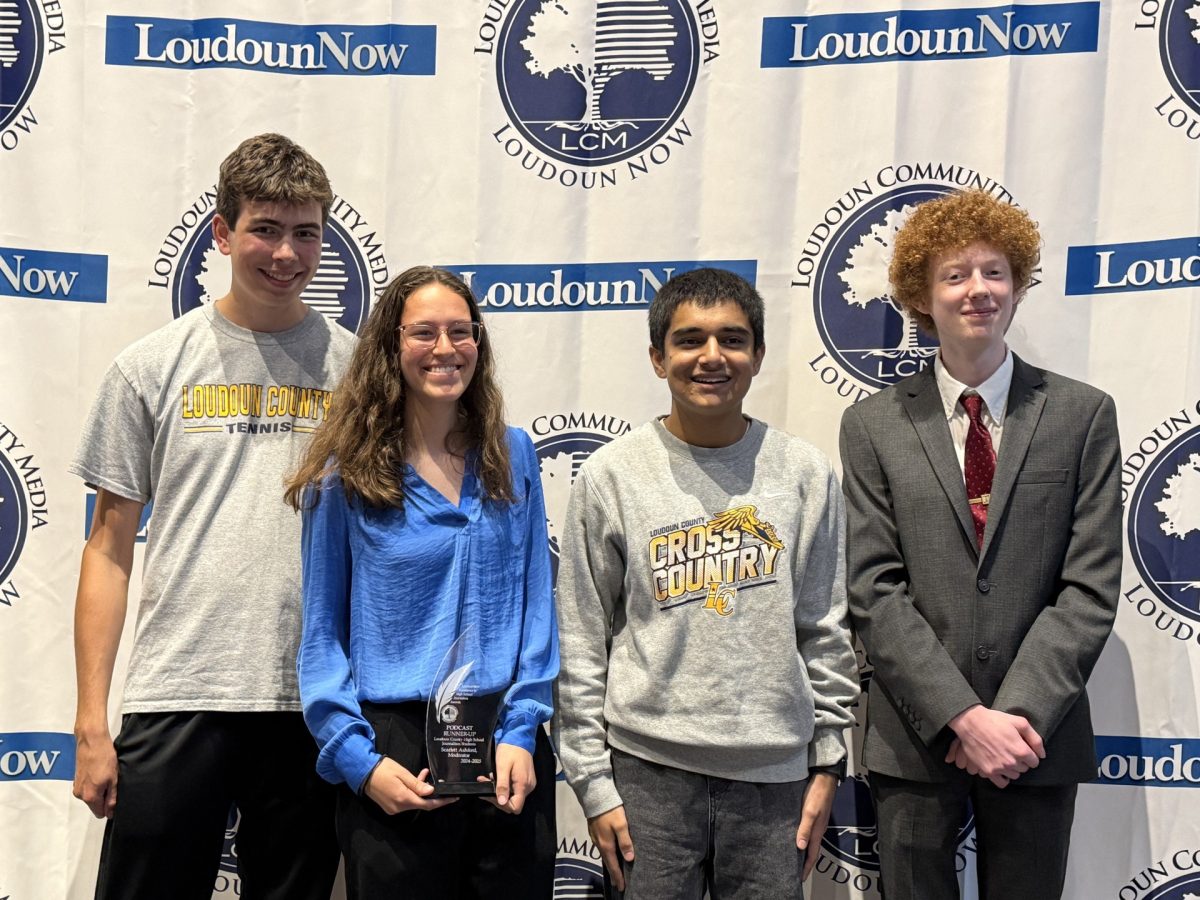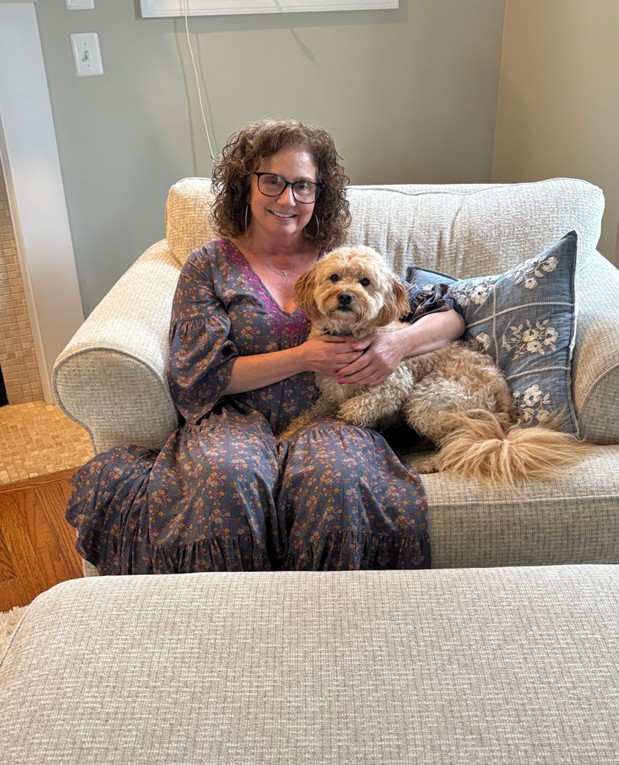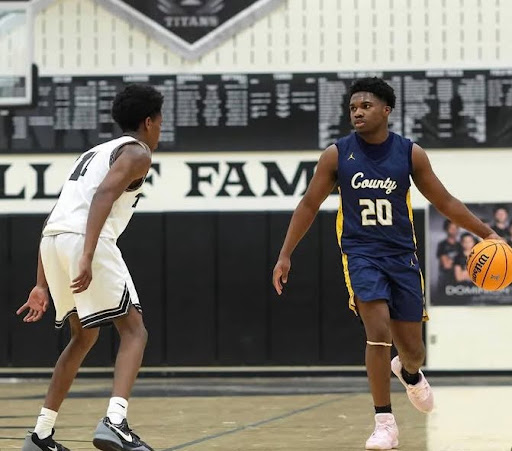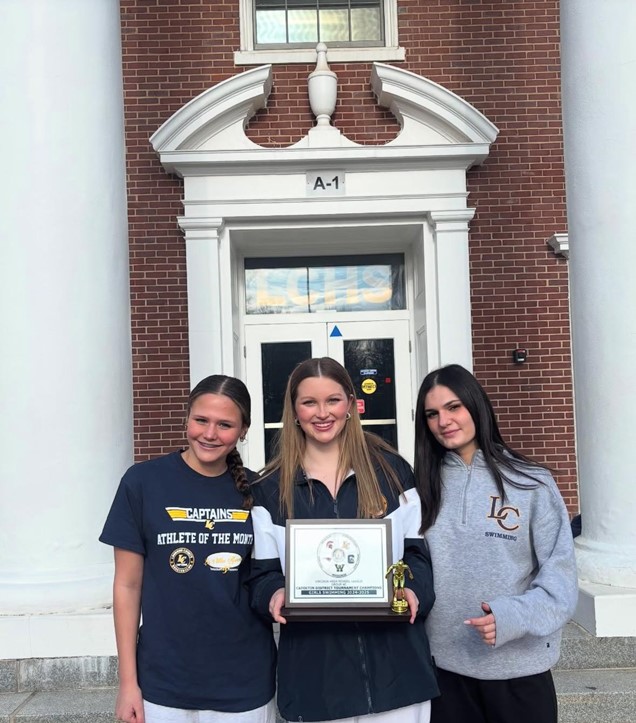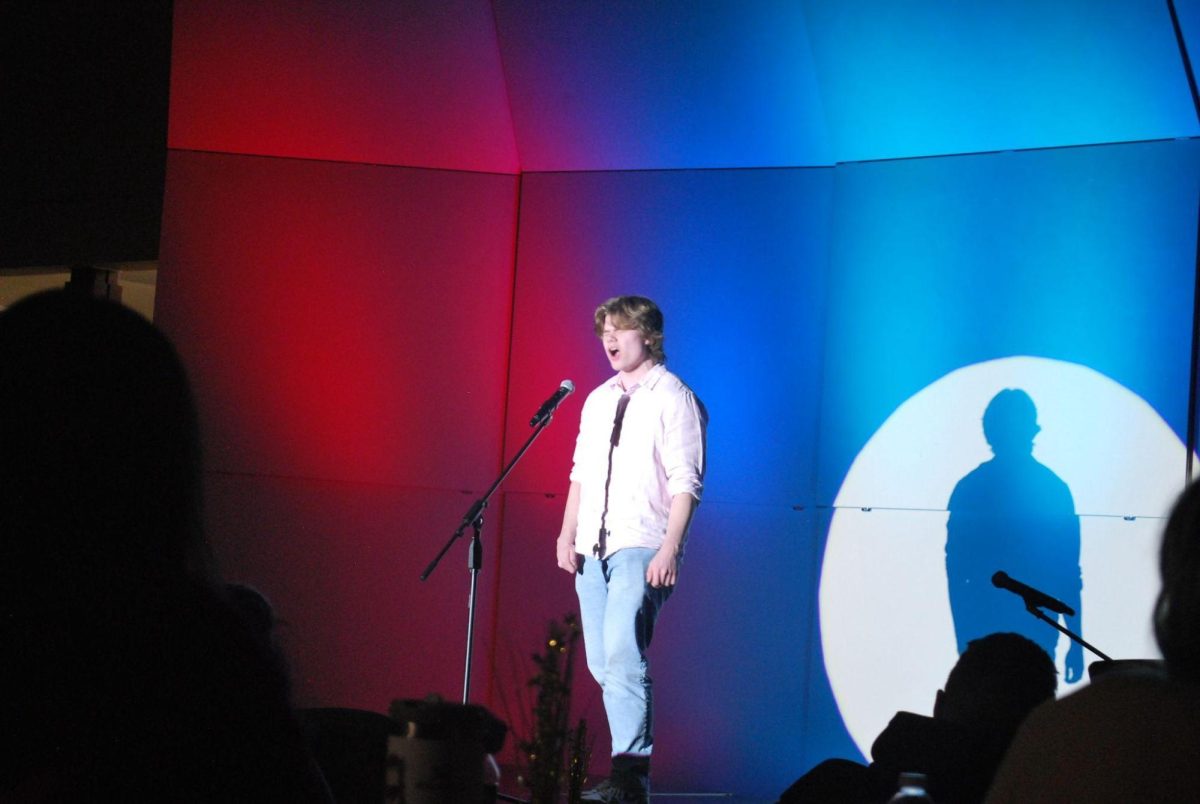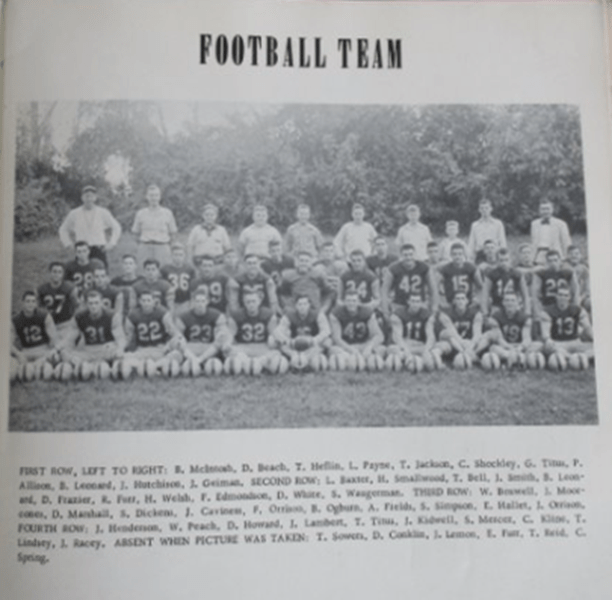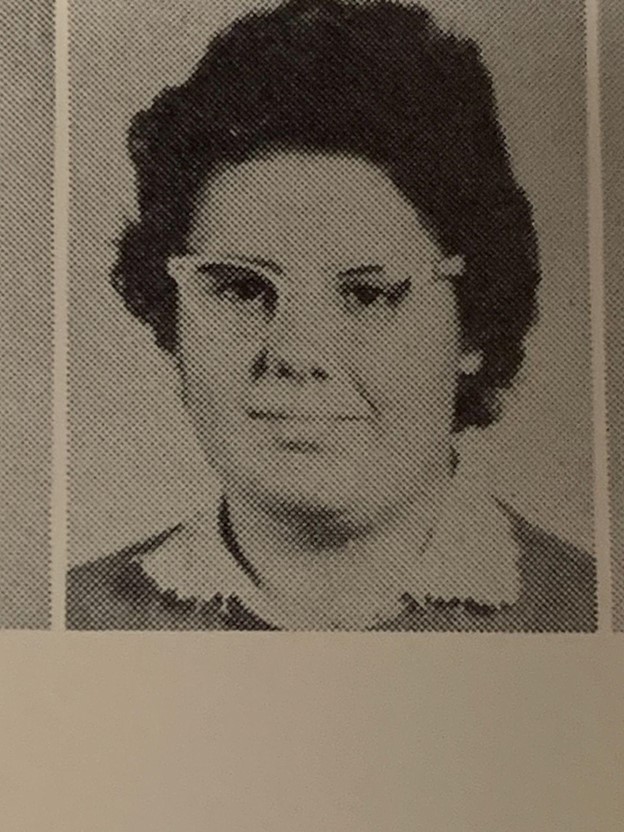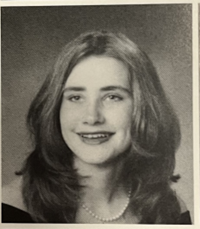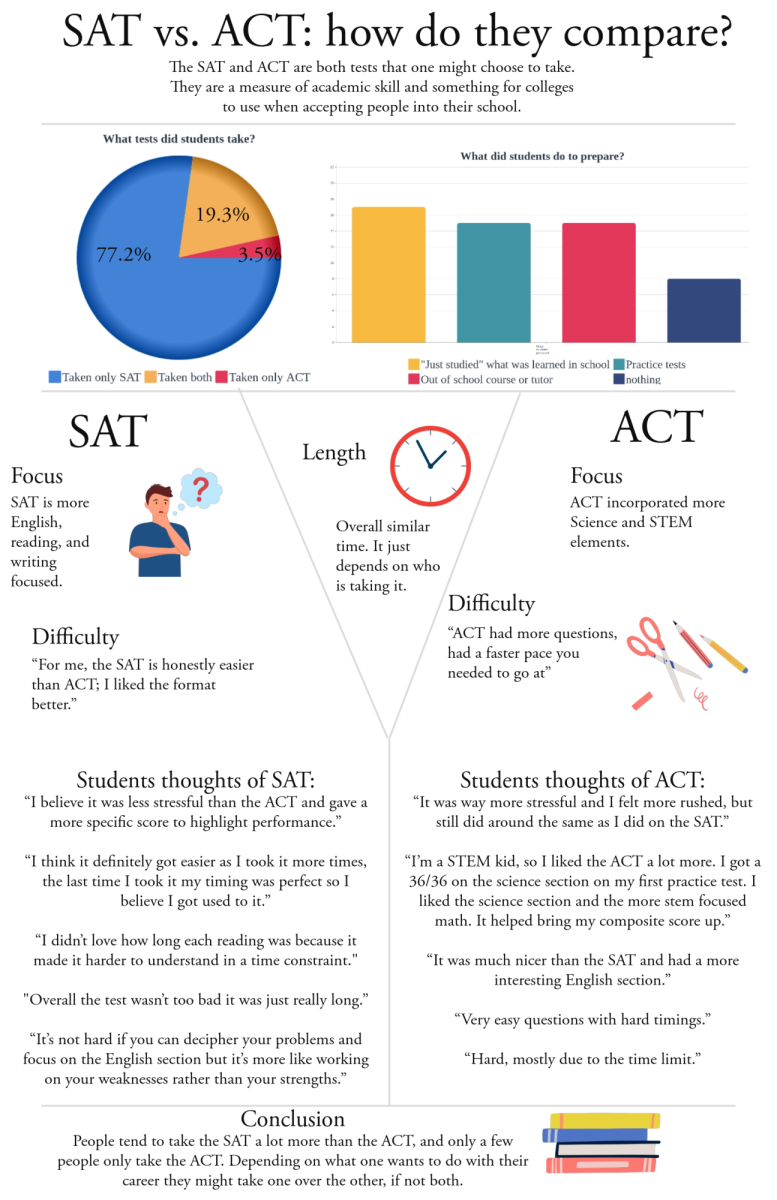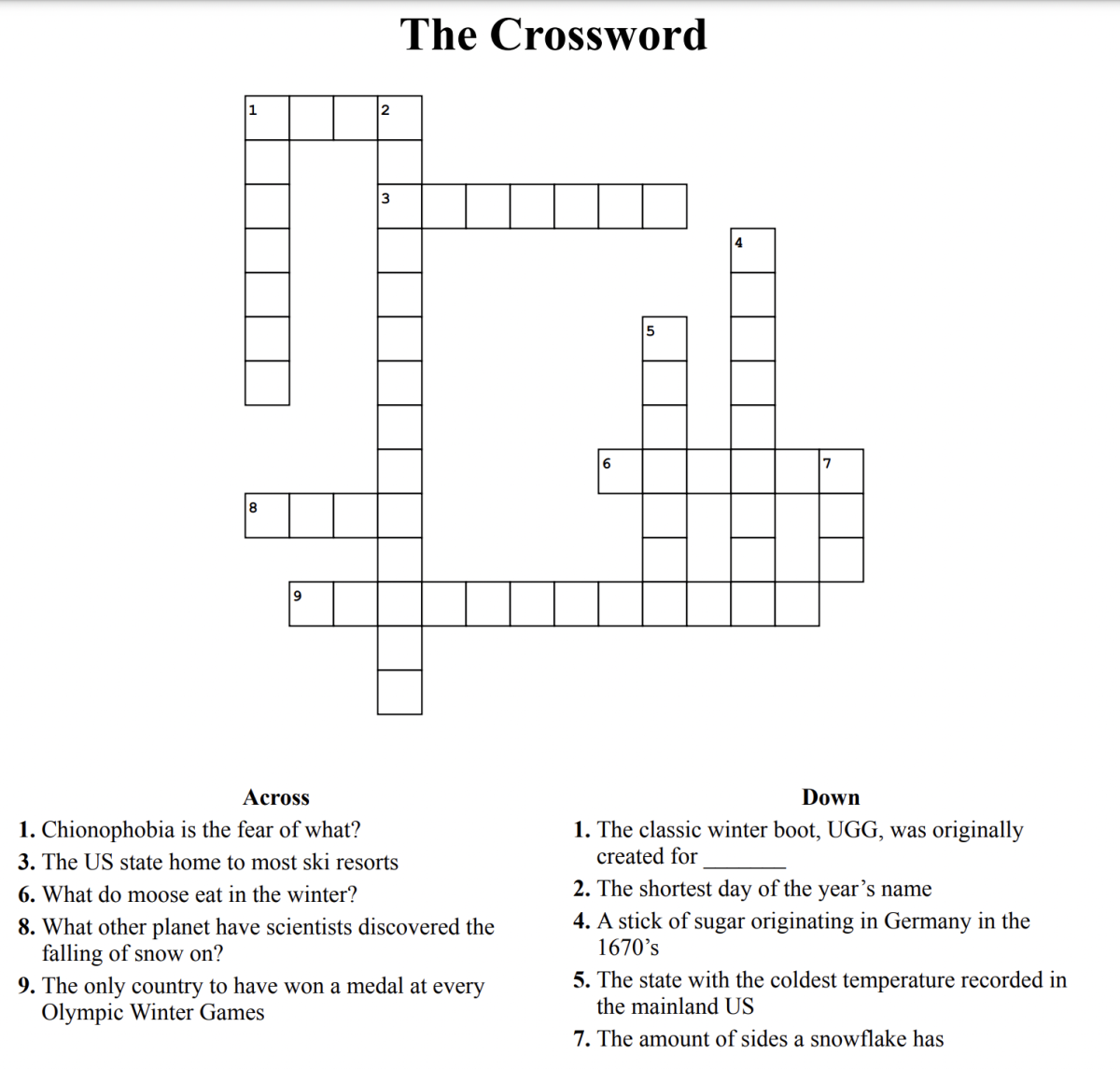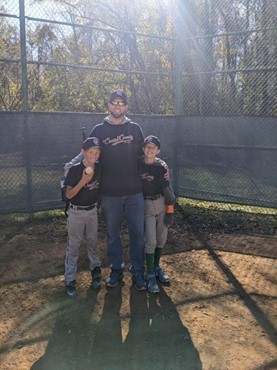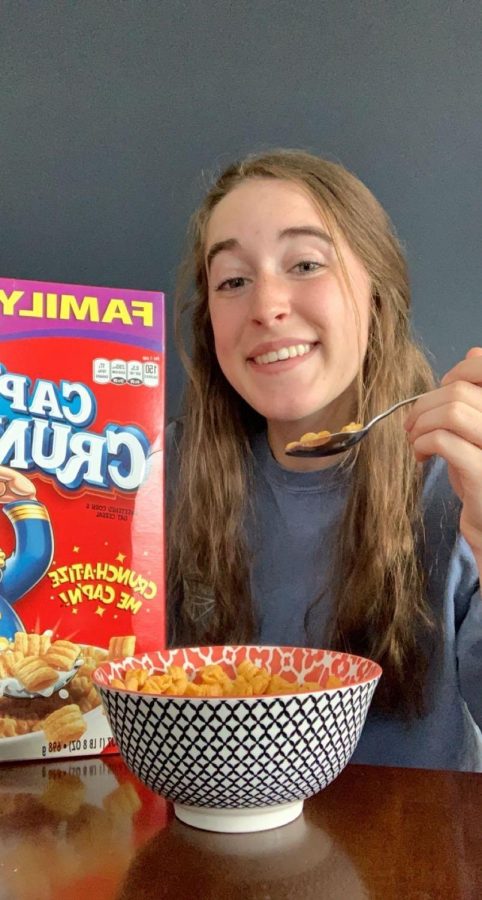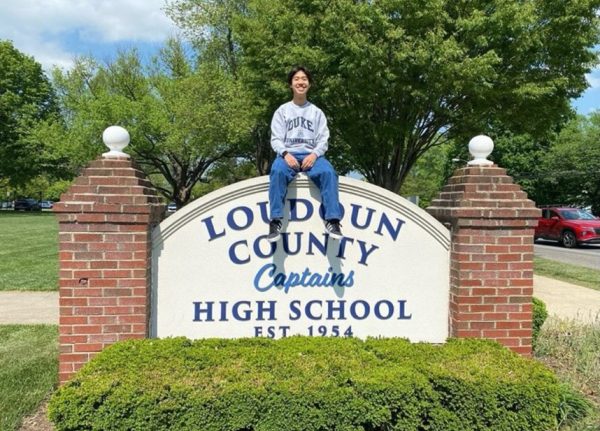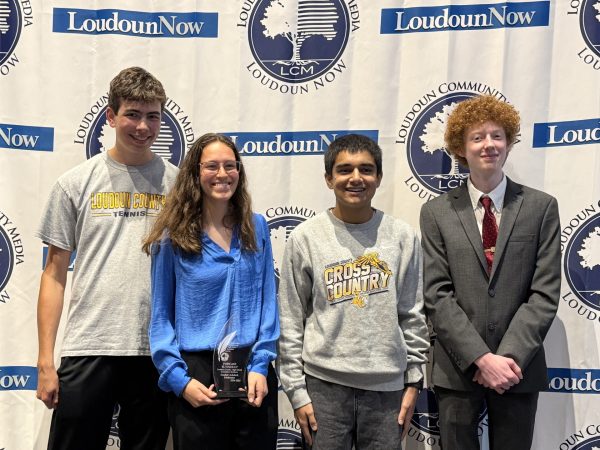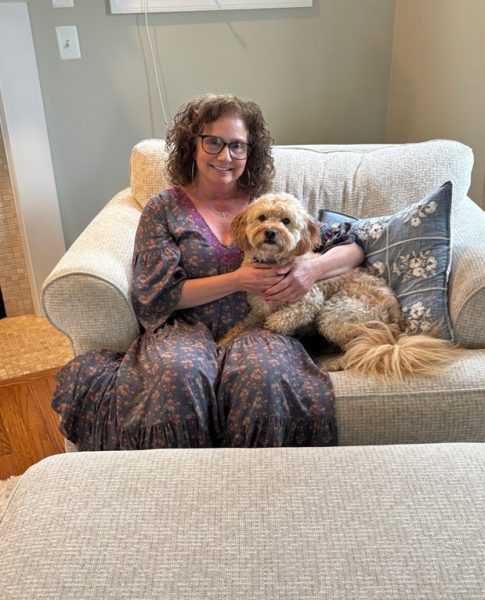Coronavirus vaccine provides hope for the community

The coronavirus vaccine has brought with it many emotions, including relief and hope but has also once again highlighted the tribulations caused by the pandemic. The experiences of both nurses and those who have been vaccinated are not only impacting those individuals but are also shaping the history of the coronavirus pandemic.
Almost all people throughout the process have had the same reaction to receiving their shots.
Kathie Miller is usually Harmony Middle School’s nurse, but she also works as a vaccinator at the Brambleton POD. Miller said, “Most people are very excited to be there. There’ve been a few people who’ve been a little anxious just because you’re getting a shot, but for the most part people are just so excited and they just roll up their sleeves, they just can’t wait to get it, because everybody wants to get back to some sense of normal.”
“The reason I haven’t specifically [seen anyone not wanting to get the vaccine] I think is because everyone who is coming in is very excited about it,” said Jamie Klucken, a clinical pharmacist who volunteers with the Loudoun Medical Reserve Corps, run by the Loudoun County Health Department. Dr. Klucken works as a Safety Evaluator for the FDA, but any views expressed are her own. “I think people that are more concerned about the vaccine have not signed up for it. But the people that are coming in for the vaccine are just very excited about the possibility of some semblance of normalcy after they’ve got their second shot. However, we still advise everyone to still mask up and socially distance, especially with others around them that aren’t vaccinated, until we have herd immunity. Most people are just very grateful that we are there and are just excited to get it.”
However there are still many people who have shown suspicion in the vaccine, and have expressed an anxiousness or even outright refusal towards getting the vaccine.
“I have run into a lot of friends and family on Facebook that have reached out to me and expressed concern about the vaccine, given the rapid development,” Klucken said. “So it’s been very helpful knowing, because of my job, how the drug approval process works and knowing that steps regarding the evaluation of safety and efficacy were not skipped. The one thing that really sped up the process was manufacturing the vaccine prior to approval, which is not normally done. The government paid for the vaccines in advance, in case it worked, so companies could have vaccines ready to go upon approval. We’ve lucked out that so far all these vaccines presented to the FDA have actually worked. So they already had it manufactured and have been able to push it out more rapidly than normal. So there’s some hesitancy out there because people are concerned about that.”
Shannon Nerantzis, a Loudoun County High School nurse, has worked as both a vaccinator, a floating nurse (those positioned around the POD to transport materials and information to the vaccinating nurses), and as a nurse monitoring those waiting to be cleared after their injection. She said regarding those who have doubts about the safety and viability of the vaccine, “Basically the science behind this for a mRNA vaccine has been around for over 10 years. It was developed around the time of the H1N1 flu vaccine so, when they were able to get the genetic code for this virus, literally back in January, they were able to have the components to start, producing vaccines even last January. It took time to figure out what solutions and that type of thing would be needed but, honestly science is pretty amazing these days.”
Inside the vaccination PODS, however, there are still some problems.
“It’s been a very positive environment, I think for pretty much everybody as far as vaccinators, as far as people receiving vaccines. It’s a little overwhelming sometimes for people to see the first time, because it is a gym, it’s loud and it’s not the private area that they’re used to when they get vaccines, even a flu vaccine. For that usually they take you to your private room,” Nerantzis said.” So everybody’s in this big room so for some people that… took some time to get used to, but now that we’re pretty much only doing second vaccines people just kind of take the energy that’s in the room and are really positive.”
Instead of being apprehensive about getting the vaccine some people appear to be overzealous.
“I think what I’ve seen more [than people not showing up] is people trying to show up with maybe their spouse or their partner who doesn’t qualify and see if they can get a dose. Of course we can’t do that because we have it set up for so many per day and we only have so much supply,” Klucken said.
There have also been some problems at the various vaccination PODs, but these have been e resolved as time has gone on.
“As far as timing, I know I was there at the very beginning when we first started doing this. It was a little bit more difficult for us to get people through just because we were all new at this, trying to vaccinate so many people in a short period of time,” Klucken said. “But right now what I’ve seen recently is… it’s a very smooth process, people get in and get out.” Adding that her husband was vaccinated at a Fairfax vaccinating center where they too have created a smooth, efficient system, Klucken said, “So I think everyone has a set up now that it’s not a problem.”
Booking for the Brambleton POD in particular, teachers experienced some technical difficulties that were later resolved.
“So initially the County rolled out an email that was in essence, a free for all, for all teachers or staff to try and load the page up and get in and book an appointment as quickly as possible,” said Caitlin McAteer, an English and Advisory teacher at Loudoun County High School. “That was the first way that they approached getting people the vaccine. I am not sure whether they had planned to do it that way the entire time, and then realized that was a bad idea, or if that was just a, ‘let’s get people the vaccine as quickly as possible however we can and then start setting up the protocol.’” She explained that by protocol she meant the system they put in place to let teachers book appointments for the vaccine, then continued, ”I, as a teacher, received an email midway through January that said, ‘this is your personalized link to create an appointment for your COVID vaccine’ and I clicked on that. The first time I clicked on it, I opened it up and there was nothing there…it didn’t even have the dates listed that I could have picked an appointment. It just was straight up like there’s nothing there?”
After a few days however, the system was fixed and McAteer was able to book her appointment.
“Then the second or third time that I refreshed and went back, I think a day or two later, the appointment times had filled in and at that point I was able to get a slot that worked for me,” McAteer said. “So they went from having it be wide open and crashing the site actually several times, it was kind of a mess, shifting over to doing it on a personalized level, which still had some glitches, but it was a lot simpler because at least that way I knew what options I had. I wasn’t desperate to grab any of them. I knew that there were available mobile spots that I could manage.”
Dealing with these bumps in the road are the many nurses working in the PODs, many of whom have felt a great impact from their work.
“I can tell you the first day, besides being completely exhausted,” Miller said. “I literally, I cried. I called my brothers and I said, ‘Mom and Dad would have been so proud of me because of it.’ You know, this is part of history. I said, ‘I’m going to someday if I have grandkids, someday tell my grandkids about this.’ Because we are part of history. We are part of you know, this worldwide pandemic and this is this one step in getting everything back to normal or somewhat normal. So it was a very emotional and exhausting experience.”
Nerantzis said what she took away from her experience working in the POD was, “Just that people really appreciate all the efforts that we’ve gone to to make sure that they’re vaccinated, that the system has gone smoothly, that they don’t have, for the most part, they don’t have to wait a long time.” She added, ‘I think one of the lessons is that if you take time to orchestrate something thoughtfully and make sure that everyone’s taken care of it really shows.”
Not only have nurses been affected by working at the POD but by getting the vaccine themselves.
“It’s kind of funny because I knew, the student health services staff, we knew prior to going on Christmas Break that we would potentially get it [the coronavirus vaccine] over break so we were told to make sure you’re checking your emails and so I was checking my email every day over break,” Miller said. “New Year’s Eve I looked at the email in the morning there was nothing there, so I went out and walked my dog and came home and I was like oh, I’ll look one more time and then lo and behold there’s this email. I filled it out and then literally I got my shot like an hour later, it all happened really, really fast. And when I got mine it was at the initial vaccine clinic …in this warehouse in Sterling and it was bizarre because it was this big empty warehouse that was freezing cold and everybody’s just standing in line, following the dots on the floor that are six feet apart. I kind of pulled my camera out on my phone and I was being all stealth to get a picture to send it to my husband and the girl behind me goes, ‘I just did the same thing, do you feel like you’re in a weird sci-fi movie?’ and I said, ‘I do.’ It was funny because last year for New Years I was on a cruise and I’m saying to her, ‘It’s just so bizarre because last year I was in the Bahamas and this year I’m in this weird warehouse getting a vaccine.’ Then the second one I actually got at the Loudoun County School POD, all the nurses were working the pod so we just got our vaccines there. Then it wasn’t as strange but the first time, like I said, from the time I got the email I literally was rolling up my sleeve like an hour later and it just happened so fast and I kind of didn’t ask a lot of questions I just kind of went with it and then thought, ‘Wow, this is strange.’”
The nurses who have stepped into the front line of vaccine distribution want to share the knowledge and insights that they have gained from their profession and their experiences.
“I would feel like whether you’re talking about COVID or you’re talking about, like, a tornado that happens or anything,” Miller said, “I think until it affects you personally or your family or your friends, I don’t think people really take things seriously.
Miller explained that she had a close family friend who lost his leg because of blood clotting issues related to COVID-19.
“He [Miller’s family friend] was one of those people who basically had every possible bad thing related to COVID happen, and he survived it but his life will never be the same,” Miller said. “I think my message I would want to get across to the people is, maybe it hasn’t affected you or your family, or maybe it did and it was very mild, but this is serious. This is not a fake virus. I think we all need to do our part to move past this whether it’s wearing your mask, or doing your social distancing or getting your vaccine. We all have a social responsibility, because not everybody is lucky enough either not to be affected or to get by with minimal symptoms.”
Nerantzis has a similar message to Loudoun County High School, “Just continue to be careful with [your] social distancing. I know it’s hard and I applaud all of you who’ve done such a great job, but just keep carrying on and hopefully we’ll get back together soon. So I guess sort of keep doing what you’re doing because it’s working.”
Multiple teachers from LCHS who have also gone through the experience of getting the coronavirus vaccine agree that it was an easy decision to get it done.
“It was easy and it was made easier for me to prioritize because the County, the admin gave us the go ahead, that … teachers [and] staff have the option to create asynchronous learning day that you go get your vaccine,” McAteer said. “I was able to choose that in order to drive to Brambelton, and then stand in line. So knowing that I had been given the permission, that we had permission from the administration to give the students something, without feeling like I was cheating or without feeling like, you know, taking care of myself, came at the cost of doing my job. It was much better that way, and knowing that with the vaccine, if I’m vaccinated, I’m going to be that much more prepared to get back into the classroom. It was always easy enough to just say yes, I’m going to go get it.”
“The school system allowed us to take the time during the school day, if we needed to, to get our vaccination,” said Eleanor McKenzie, an APWH teacher at Loudoun County High School. She explained that in fact the day she scheduled it for was a snow day and said, “So I didn’t have to miss school, but if I had to, they made the process easy for us. I could find someone to cover for me or I could do an asynchronous class.”
After making the decision to get the vaccine the process for teachers was fairly easy.
McAteer made her appointment on the 18th and got the vaccine ten days later, on the 28th.
“I was concerned because I was prepared for it to be booked out solid, but it worked out pretty well,” McAteer said.
Arriving for her 3:30 appointment at 3:45 McAteer stood in line for 20 to 30 minutes, got her vaccine, and waited for 15 minutes to make sure she did not have an adverse reaction.
“So all told …it probably was just about an hour.” said McAteer. “So it was, it was really not bad”
McAteer got the Pfizer vaccine.
“It didn’t hurt,” McAteer said. “I have a lot of experience getting blood drawn and that’s always where my head goes when I think of needles. So this was actually a lot easier than getting blood drawn and it was just right into the muscle of my left arm. The vaccine itself didn’t hurt, I would say for probably two or three days afterward, my arm was sore. So I tried to be more careful about not jostling it, but, that was really the only adverse experience. Maybe my health dipped a little bit. I might’ve got the sniffles, but I don’t think … anything major happened.”
She might not have had much of a physical reaction, but McAteer admits she was emotionally affected.
“I will say that I felt kind of emotional,” McAteer said. “I have been feeling a pretty great sense of relief over having gotten the vaccination process started. I am aware that there are, you know, questions about whether they’re effective against the newer variants of COVID and that does make me a little bit uneasy. But I spoke to the nurses who were in charge of all the stations and they expressed a sense of being part of history and I felt the same way. I feel an extreme relief, the kind of thing where something really intense has been hanging over you and then all of a sudden it’s taken care of. It’s over. It’s done. And you’re just like, whew, you feel kind of giddy almost…it’s still just a big sense of, of happiness and of release.”
McAteer was scheduled for her second shot on the 28th of February, meaning she is now fully vaccinated.
Now that she had been through the process, like the nurses, McAteer also wants to share her experiences with the community.
“I know there’s a lot of fear and that different people think different things about the vaccine,” McAteer said. “I’ve put a lot of faith in history, looking at the history of vaccinations in the United States and looking too at the people…on the ground. Like, do I trust the nurse at school? Do I trust Shannon Nerantzis ? Yes, I do. Do I trust nurses in general? Yes I do. So if these are people who have worked quote unquote on the front lines of healthcare, their entire life, and they are excited and they are feeling positive about it, then I think that that gives me more confidence to trust them and to believe what they see over any conspiracy theories or fears that other people have. That’s what I would share most and foremost is yes, remain informed, but I mean really remain informed by talking to people who actually know, who have had the real experience.”
McKenzie also described the ease of the vaccination process and how it affected her personally.
Referring to the interim period between booking and getting a shot McKenzie said, “It was only a couple of days because I opened up the link randomly on a Saturday morning and I got the appointment on Monday, but that was the Monday that school was closed, so they moved it to a different day.”
She got the Pfizer shot as well, spending about 20 minutes going through the process. Afterwards she reported having a sore arm for around 3 days and fatigue, but no other symptoms. She was scheduled to get her second shot on March 1st, meaning she as well is now fully vaccinated.
After getting the shot she too felt a sense of relief.
“You know that George Michael song, ‘Freedom’? That was going through my head,” McKenzie said.
Your donation will support the student journalists of Loudoun County High School. Your contribution will allow us to purchase equipment and continue to print our issues for the students at our school.

Editor-in-chief Liberty Harrison is a senior at LCHS. This is her third year working on the newspaper staff. She would like to one day be an investigative...


